OTHER BOOKS IN THE ERIC VOEGELIN INSTITUTE SERIES IN POLITICAL PHILOSOPHY
Beginning the Quest: Law and Politics in the Early Work of Eric Voegelin, by Barry Cooper
How World Politics Is Made: Franois Mitterand and the Reunification ofGermany, by Tilo Schabert
Worldview and Mind: Religious Thought and Psychological Development, by Eugene Webb
Rethinking Rights: Historical, Political, and Philosophical Perspectives, edited by Bruce P. Frohnen and Kenneth L. Grasso
The Philosopher and the Storyteller: Eric Voegelin and Twentieth-CenturyLiterature, by Charles R. Embry
The Constitutionalism of American States, edited by George E. Connor and Christopher W. Hammons
Voegelin Recollected: Conversations on a Life, edited by Barry Cooper and Jodi Bruhn
The American Way of Peace: An Interpretation, by Jan Prybyla
Faith and Political Philosophy: The Correspondence between Leo Strauss andEric Voegelin, 1934-1964, edited by Peter Emberley and Barry Cooper
New Political Religions, or an Analysis of Modern Terrorism, by Barry Cooper
Art and Intellect in the Philosophy of tienne Gilson, by Francesca Aran Murphy
Robert B. Heilman and Eric Voegelin: A Friendship in Letters, 1944-1984, edited by Charles R. Embry
Voegelin, Schelling, and the Philosophy of Historical Existence, by Jerry Day
Transcendence and History: The Search for Ultimacy from Ancient Societies toPostmodernity, by Glenn Hughes
Eros, Wisdom, and Silence: Platos Erotic Dialogues, by James M. Rhodes
The Narrow Path of Freedom and Other Essays, by Eugene Davidson
Hans Jonas: The Integrity of Thinking, by David J. Levy
A Government of Laws: Political Theory, Religion, and the American Founding, by Ellis Sandoz
Augustine and Politics as Longing in the World, by John von Heyking
Lonergan and the Philosophy of Historical Existence, by Thomas J. McPartland
Politics Reformed: The Anglo-American Legacy of Covenant Theology, by Glenn A. Moots
Voegelinian Readings of Modern Literature, edited by Charles R. Embry
ERIC VOEGELIN INSTITUTE SERIES IN POLITICAL PHILOSOPHY: STUDIES IN RELIGION AND POLITICS
Etty Hillesum and the Flow of Presence: A Voegelinian Analysis, by Meins G. S. Coetsier
Christian Metaphysics and Neoplatonism, by Albert Camus; translated with an introduction by Ronald D. Srigley
Eric Voegelin and the Problem of Christian Political Order, by Jeffrey C. Herndon
Republicanism, Religion, and the Soul of America, by Ellis Sandoz
Michael Oakeshott on Religion, Aesthetics, and Politics, by Elizabeth Campbell Corey
Jesus and the Gospel Movement: Not Afraid to Be Partners, by William Thompson-Uberuaga
The Religious Foundations of Francis Bacons Thought, by Stephen A. McKnight
AUTOBIOGRAPHICAL REFLECTIONS
REVISED EDITION WITH GLOSSARY

ERIC VOEGELIN
EDITED WITH AN INTRODUCTION BY
ELLIS SANDOZ
UNIVERSITY OF MISSOURI PRESS
COLUMBIA AND LONDON
Copyright 2011 by
The Curators of the University of Missouri
University of Missouri Press, Columbia, Missouri 65201
Printed and bound in the United States of America
All rights reserved
5 4 3 2 1 15 14 13 12 11
Cataloging-in-Publication data available from the Library of Congress
ISBN 978-0-8262-1930-5
ISBN 978-0-8262-7255-3 (electronic)
 This paper meets the requirements of the American National Standard for Permanence of Paper for Printed Library Materials, z39.48, 1984.
This paper meets the requirements of the American National Standard for Permanence of Paper for Printed Library Materials, z39.48, 1984.
Typesetter: BOOKCOMP, Inc.
Printer and binder: Thomson-Shore, Inc.
Typeface: Trump Mediaeval
Publication of this book has been assisted by a contribution from the Eric Voegelin Institute, which gratefully acknowledges the generous support provided for the series by the Earhart Foundation and the Sidney Richards Moore Memorial Fund.
Contents
Introduction to the Revised Edition
This revised edition of Eric Voegelins Autobiographical Reflections consists of the original text, slightly revised and expanded, together with the introduction from the 1989 edition and some additional annotation, a glossary of terms used in Voegelins writings that lists, defines, and illustrates from the authors writings many of the key terms employed, and an expanded index of the volume that includes names, subjects, ideas, and writings. Together, they make the volume an indispensable help for any serious study of Eric Voegelins oeuvre. A history of the publication of Autobiographical Reflections appears in the introduction from the 1989 edition, and with each appearance, there have been appropriate updates to information included.
Without attempting comprehensive annotation, I have sought to give useful pointers in this volume to some of the places in The Collected Works of Eric Voegelin where matters discussed conversationally here are given more technical and fuller attention by Voegelin. While the Autobiographical Reflections is a compelling account in its own right, the pointers help fill in detailsespecially in publications completed after this text, which dates from 1973. A similar approach was taken in the final preparation of the glossary, compiled by Eugene Webb from several sources and supplemented by the editor. While making no pretense of being a complete vocabulary of Voegelins technical terminologyhimself an accomplished polyglot operating in more than a dozen languages, Voegelins vocabulary is sometimes regarded as a stumbling block to comprehension. It is hoped that new readers especially will find that both of these documents improve intelligibility as they read this important work, a valuable introduction to Voegelins thought, and move on to other writings contained in Voegelins Collected Works, and that scholars already familiar with Voegelins works will find new sources of insight into the bases of his views.
Readers who turn to the Collected Works will find within every volume a scholarly introduction by its editor or editors, providing insights into the materials brought to publication in it and commentaries on them.
Immediately evident in those publications is the magnificent scope and depth of the work of Voegelin as a great scholar. What seldom appears in all this, however, is much evidence of Voegelin as teacherand he was a superb teacherthe principal exception being the few pages found herein in But since Voegelin earned his living as a teacher during a long career, and in all of his work quite intentionally sought to teach and persuade, as well as to discover and inform, perhaps a few comments in this place on his pedagogy and persona as a teacher will be of interest.
To speak autobiographically, I first encountered Voegelin as an unsuspecting undergraduate at Louisiana State University when I enrolled in his principal course, the survey in political theory for juniors and seniors, and then stayed on to write a masters At the Ludwig-Maximilian-Universitt in Munich the seminars were larger and more formal, and they typically were held in the Institute for Political Science that Voegelin came there to establish when he took up a professorship in 1958.
To summarize: Voegelin commanded the attention and respect of students, and he presented himself as someone who knew his business. He based on a solid conviction that classical Greek philosophy is the foundation of political science: The lecture materials were presented from this coherent starting point. Devotion to truth and a desire to communicate it to students illumined every lecture and discussion, with the exploration of questions constantly reflecting the tension toward the divine ground of reality as the decisive context for exploring the human condition and political issues. A sense of openness to the horizon of reality, and refusal to truncate reality or go along with reductionist constructs of any kind whatever, encouraged students to engage resourcefully in the examination of complicated materials as partners in the discussionrather than as mere spectators absorbing indifferent information. This, in turn, encouraged students sympathetically to involve their own common sense, intellectual, and faith experiences in understanding demanding material in personal reflective consciousness, implicitly somewhat on the pattern of the Socratic Look and see if this is not the casei.e., by validating the analytical discourse through personal understanding and questioning.

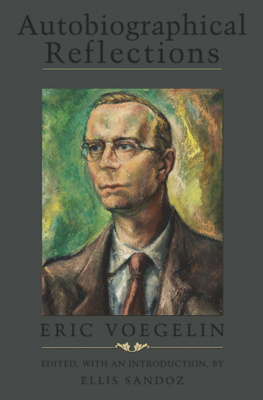
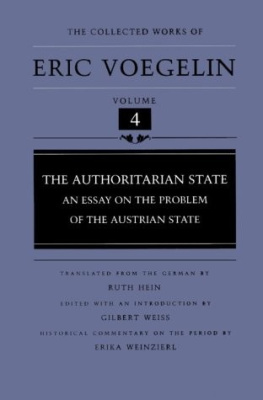
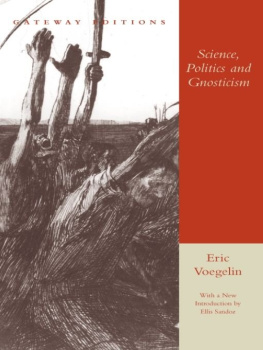
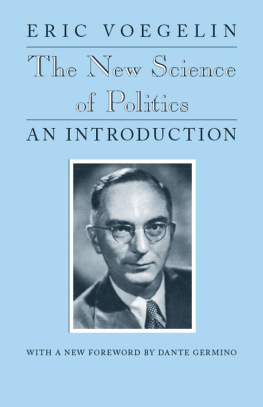
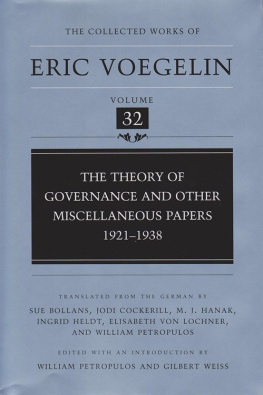
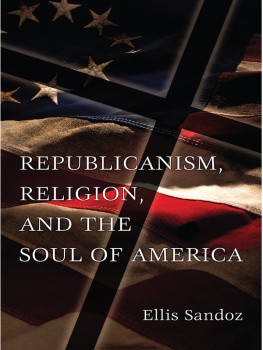
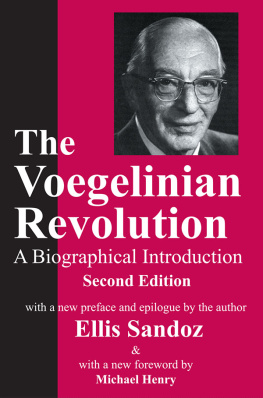
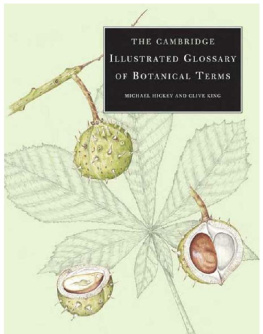


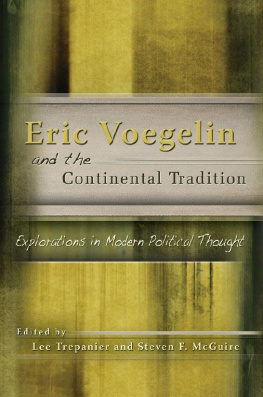

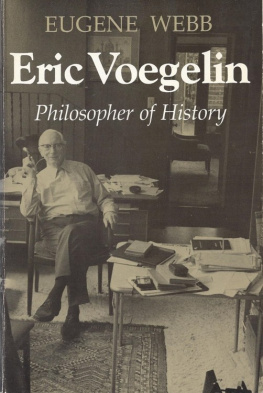



 This paper meets the requirements of the American National Standard for Permanence of Paper for Printed Library Materials, z39.48, 1984.
This paper meets the requirements of the American National Standard for Permanence of Paper for Printed Library Materials, z39.48, 1984.